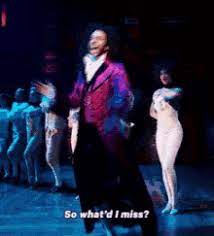A sanctions award was reversed in Ozmun v. Wood when, among other matters: “‘[T]he district court denied PRA[‘s] cross motion for summary judgment on the FDCPA claim which indicates [Appellant’s] position was far from frivolous. In fact, it was so substantial that the district court thought it warranted a trial.’ Thus, Ozmun’s claims brought under the TFDCPA were not a ‘clear misuse of the TFDCPA’ as the district court stated. They simply failed on summary judgment.” No. 19-50397 (March 24, 2022) (unpublished, citation omitted)).
Monthly Archives: March 2022
 An interlocutory appeal had some matters entangled with it in Jiao v. Xu (not unlike the quantum entanglement recently photographed for the first time, right):
An interlocutory appeal had some matters entangled with it in Jiao v. Xu (not unlike the quantum entanglement recently photographed for the first time, right):
“The preliminary injunction is an interlocutory order made appealable by 28 U.S.C. § 1292(a)(1). The declaratory relief constitutes a final order, and we have appellate jurisdiction under 28 U.S.C. § 2201. The turnover order is likewise final, and we have appellate jurisdiction to review it under 28 U.S.C. § 1291. Typically, we would not have jurisdiction over the district court’s
denial of Xu’s motion to dismiss. But to the extent the
underpinnings of Xu’s motion are inextricably intertwined with the district court’s subsequent rulings challenged on appeal, we determine that we have jurisdiction to address those issues. See Magnolia Marine Transp. Co. v. Laplace Towing Corp., 964 F.2d 1571, 1580 (5th Cir. 1992) (‘[O]ur jurisdiction is not limited to the specific [injunctive] order appealed from, and we may review all matters which establish the immediate basis for granting injunctive relief.’); see also In re Lease Oil Antitrust Litig. (No. II), 200 F.3d 317, 320 (5th Cir. 2000) (reaching denial of motion to dismiss as part of § 1292(a)(1) appeal where issues were ‘so entangled as to arrive here together’ and ‘[d]elaying review . . . would make no practical sense’).”
No. 20-20106 (March 11, 2022) (emphasis added, footnote and certain citations omitted).
 Making an Erie guess about Louisiana insurance law, the Fifth Circuit held: “Consistent with our decision in Terry Black’s, and the decisions of the unanimous circuit courts, we conclude, pursuant to Louisiana law, that losses caused by civil authority orders closing nonessential businesses in response to the COVID-19 pandemic do not fall within the meaning of ‘direct physical loss of or damage to property.'” Q Clothier v. Twin City Fire Ins., No. 21-30278 (March 22, 2022).
Making an Erie guess about Louisiana insurance law, the Fifth Circuit held: “Consistent with our decision in Terry Black’s, and the decisions of the unanimous circuit courts, we conclude, pursuant to Louisiana law, that losses caused by civil authority orders closing nonessential businesses in response to the COVID-19 pandemic do not fall within the meaning of ‘direct physical loss of or damage to property.'” Q Clothier v. Twin City Fire Ins., No. 21-30278 (March 22, 2022).
Trafigura Trading v. United States featured a dispute about one of the many prohibitions in Article I Section 9 of the Constitution; specifically, clause 5, which says: “No Tax or Duty shall be laid on Articles exported from any State.” An oil company argued that a federally-imposed charge on oil exports, collected to finance the Oil Spill Liability Trust Fund, violated this provision.
 The district court ruled for the oil company and a Fifth Circuit panel affirmed. One judge, drawing heavily from lyrics made famous by “Hamilton,” described the surprisingly colorful history of this provision, and voted to affirm. Another judge voted to affirm but declined to join that opinion. And the third judge dissented. As a result, the other opinion had no quorum supporting it and thus lacked precedential effect. No. 21-20127 (March 24, 2022).
The district court ruled for the oil company and a Fifth Circuit panel affirmed. One judge, drawing heavily from lyrics made famous by “Hamilton,” described the surprisingly colorful history of this provision, and voted to affirm. Another judge voted to affirm but declined to join that opinion. And the third judge dissented. As a result, the other opinion had no quorum supporting it and thus lacked precedential effect. No. 21-20127 (March 24, 2022).
On that broader subject, cf. Sambrano v. United Airlines, No. 21-11159 (Feb. 17, 2022) (Smith, J., dissenting) (sympathizing with “the hapless trial judge or conscientious advocate” that must reason from nonprecedential rulings); see generally Alexander Hamilton, Federalist No. 78 (May 28, 1788) (“To avoid an arbitrary discretion in the courts, it is indispensable that they should be bound down by strict rules and precedents, which serve to define and point out their duty in every particular case that comes before them; and it will readily be conceived from the variety of controversies which grow out of the folly and wickedness of mankind, that the records of those precedents must unavoidably swell to a very considerable bulk, and must demand long and laborious study to acquire a competent knowledge of them.”).
The PREP Act — a 2005 law allowing the HHS secretary to make a declaration that immunizes certain disaster responders from liability — was held not to completely preempt state-law negligence claims in Mitchell v. Advanced HCS. The Fifth Circuit noted:
- “First, the only cause of action [the PREP Act] creates is for willful misconduct. Assuming—without deciding—that the willful misconduct cause of action is completely preemptive, the question is whether Mitchell ‘could have brought’ the instant claims under that cause of action. He could not. The Act clearly states that its willful-misconduct cause of action creates ‘a standard for liability that is more stringent than a standard of negligence in any form or recklessness.'”
- “Second, the compensation fund that the Act creates is not completely preemptive under this court’s precedents. To begin, a ‘compensation fund is not a cause of action.’ It may be a civil-enforcement provision, but such provisions must nevertheless ‘create[] a cause of action.’ … Assuming arguendo that the compensation fund suffices as a cause of action, the Act nevertheless does not create ‘a specific jurisdictional grant to the federal courts for enforcement of the right.’ Instead, the Secretary oversees administration of the fund. Worse, the statute expressly withdraws jurisdiction from any court, state or federal, concerning ‘any action [taken] by the Secretary’ in doing so.”
No. 21-10477 (March 10, 2022) (citations omitted, emphasis added).
“Attempting to sidestep Rooker-Feldman, Paul argues that an exception to the doctrine allows for collateral review of state court judgments that are void ab initio for lack of jurisdiction. ‘This court has neither endorsed nor rejected [this] exception,’ and ‘[o]ur sister circuits are split on the issue.’ We need not resolve the split here, however, because even if we were to adopt this exception, ‘the cases that . . . recognize’ it ‘indicate that it is presently limited to the bankruptcy context.’ What is more, Paul’s basis for contesting the Texas courts’ jurisdiction is that the vexatious litigant statute is unconstitutional. But a judgment is not void simply because it applied an unconstitutional statute.” Nunu v. State of Texas, No. 21-20446 (March 17, 2022, unpublished).
FERC v. Ultra Resources presented a novel question about the interaction of the Bankruptcy Court and a filed-rate contract, and held “that under the particular circumstances presented here, Ultra Resources is not subject to a separate public-law obligation to continue performance of its rejected contract, and that 11 U.S.C. § 1129(a)(6) did not require the bankruptcy court to seek FERC’s approval before it confirmed Ultra Resource’s reorganization plan.” No. 21-20126 (March 14, 2022).
 The long shadow of Edward Young (right), who served as Minnesota’s well-mustachioed Attorney General in the early 20th century, fell upon two companion cases about Texas election laws, in which a panel majority found that the Texas Secretary of State was not a proper defendant under Ex Parte Young. A dissent (from both panel opinions) saw matters otherwise:
The long shadow of Edward Young (right), who served as Minnesota’s well-mustachioed Attorney General in the early 20th century, fell upon two companion cases about Texas election laws, in which a panel majority found that the Texas Secretary of State was not a proper defendant under Ex Parte Young. A dissent (from both panel opinions) saw matters otherwise:
I write to remind failing memories of the signal role of Ex parte Young in directly policing the path of cases and controversies to the Supreme Court from our state and federal courts and warn against its further diminution. … ‘Ex parte Young poses no threat to the Eleventh Amendment or to the fundamental tenets of federalism. To the contrary, it is a powerful implementation of federalism necessary to the Supremacy Clause, a stellar companion to Marbury and Martin v. Hunter’s Lessee.’
…
The majority continues this Court’s effort to shrink the role of Ex parte Young, by overly narrow readings of the state officer’s duty to enforce Texas’s election laws. … [T]he Texas Secretary of State is the “chief election officer of the state” and is directly instructed by statute to “obtain and maintain uniformity in the application, operation, and
interpretation of this code and of the election laws outside this code.” Moreover, the Secretary is charged to “take appropriate action to protect the voting rights of the citizens of this state from abuse by the authorities administering the state’s electoral processes” and “to correct offending conduct.” Although recent decisions by this Court have split hairs regarding the level of enforcement authority required to satisfy Ex parte Young, the Secretary is charged to interpret both the Texas Election Code and the election laws outside the Code, including federal law, to gain uniformity, tasks it is clearly bound to do. The allegation in these cases is that the Secretary is failing in that duty. This charge should satisfy our Ex parte Young inquiry.
TARC v. Scott, No. 20-40643 (March 16, 2022); Richardson v. Flores, No. 20-50744 (March 16, 2022) (footnotes and citations omitted). (I was recently interviewed about the case by KDFW-TV in Dallas.)
A dispute about “fee forfeiture,” in the broader context of fidiuciary-duty breaches by a company’s lawyer, led to this observation about the proper role of the Burrow v. Arce fee-forfeiture factors: “[T]there is no “windfall” given the record in this case. Hughes unfairly transferred PPI’s assets to Performance Probiotics, in breach of her fiduciary duty to PPI, and then used those assets to generate the fees at issue. That is, even though Hughes was paid by Performance Probiotics, she was effectively paying herself with funds that were rightfully PPI’s. We find no abuse of discretion in the district court’s award of fee forfeiture in this context as it accords with the general rule that disloyal agents must disgorge their ill-gotten gains.” Thomas v. Hughes, No. 20-50671 (March 3, 2022).
“Hughes asserts there was insufficient evidence to establish that Pearcy had any trade secrets or that Hughes and Performance Probiotics improperly used any of Pearcy’s trade secrets. But Hughes did not raise these challenges in her oral [Fed. R. Civ. P.] 50(a) motion at trial. Instead, Hughes ‘move[d] for [a] directed verdict on the misappropriation of trade secrets [claim] on the ground[ ] that there [was] no evidence of an appropriate measure of damages for that cause of action,’ an argument she renewed in her Rule 50(b) motion and likewise urges here. Because Hughes did not challenge the existence of a trade secret or improper use in her initial Rule 50(a) motion, those issues were not properly raised in her post-trial Rule 50(b) motion. We therefore decline to address them on appeal.”
Thomas v. Hughes, No. 20-50671 (March 3, 2022).
A technical setting illustrated a basic requirement for a justiciable claim in Continental Automotive Systems v. Avanci:
“[A]ssuming Continental is contractually entitled to a license on FRAND [‘fair, reasonable, and nondiscriminatory’] terms as a third-party beneficiary, the pleadings reflect that it has suffered no cognizable injury. Put another way, even if Continental has rights under FRAND contracts, the contracts have not been breached because the SEP [‘standard-essential patent’] holders have fulfilled their obligations to the SSOs [“standard-setting organizations”] with respect to Continental. The supplier acknowledges that Avanci and Patent-Holder Defendants are ‘actively licensing the SEPs to the OEMs[,]’ which means that they are making SEP licenses available to Continental on FRAND terms. As it does not need to personally own SEP licenses to operate its business, it has not been denied property to which it was entitled. And absent a ‘denial of property to which a plaintiff is entitled,’ Continental did not suffer an injury in fact. ”
No. 20-11032 (Feb. 28, 2022).
 While Johnny Cash famously walked the line, the defendants in Earnest v. Sanofi U.S. Servcs., Inc., did not successfully walk the line between Rule 701 and 702, with respect to a senior company employee in a products-liability case: “While parts of Dr. Kopreski’s testimony fall within the parameters of Rule 701, he also strayed beyond ‘facts, . . . subjective beliefs[,] and opinions,’ within either his personal knowledge or his capacity as Sanofi’s corporate designee. He testified regarding highly specialized and technical information related to Taxotere, the TAX316 study, and drug studies in general.” No. 20-30184 (Feb. 10, 2022) (citation omitted).
While Johnny Cash famously walked the line, the defendants in Earnest v. Sanofi U.S. Servcs., Inc., did not successfully walk the line between Rule 701 and 702, with respect to a senior company employee in a products-liability case: “While parts of Dr. Kopreski’s testimony fall within the parameters of Rule 701, he also strayed beyond ‘facts, . . . subjective beliefs[,] and opinions,’ within either his personal knowledge or his capacity as Sanofi’s corporate designee. He testified regarding highly specialized and technical information related to Taxotere, the TAX316 study, and drug studies in general.” No. 20-30184 (Feb. 10, 2022) (citation omitted).